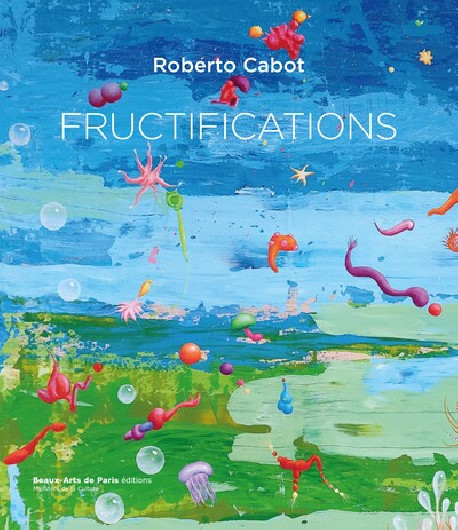No products
Product successfully added to your shopping cart
There are 0 items in your cart. There is 1 item in your cart.
Our webstore uses cookies to offer a better user experience and we consider that you are accepting their use if you keep browsing the website.

Contemporary art
- New Art Books
- Exhibition catalogue
- Highlights
- Art Book Sale
- Museum's Shop & Gifts
- Bilingual art books and foreign editions
- Children's Books
- Art History
- Painting
- Architecture
- Sculpture
- Drawing & Engraving
- Photography
- Contemporary art
- Decorative Arts & Design
- Art Techniques
- Critics
- Entertainment art books
- Civilisations
- Partners Reviews
Roberto Cabot - Fructifications
A graduate of the Beaux-Arts de Paris, Roberto Cabot uses painting to explore the concept of the Sublime and our relationship with a rapidly changing biosphere, as well as the various ways of moving beyond the 'naturalist' model that dominates our globalised society.
Shipped within 3 to 6 days
| Model | 9782840568933 |
| Artist | Roberto Cabot |
| Author | Nicolas Bourriaud, Wilfried Dickhoff |
| Publisher | ENSBA |
| Number of pages | 120 |
| Language | Bilingue Français / English |
| Dimensions | 220 x 190 |
| Published | 2024 |
This book presents the latest series of paintings, Fructifications, by the artist Roberto Cabot, and accompanies an exhibition to be held in his native Brazil in 2024.
Roberto Cabot was born in Rio de Janeiro in 1963. A Franco-Brazilian citizen, he currently lives and works in Paris. He began his studies at the FAU-UFRJ (Faculty of Architecture and Urban Planning at the Federal University of Rio de Janeiro) and continued them in Paris at the École Nationale Supérieure d'Architecture Paris-Malaquais, where he was also admitted to the Beaux-Arts de Paris for a painting course, with Pierre Alechinsky as his teacher.
During this period, Cabot developed a strong relationship with the philosopher Félix Guattari, an encounter that laid the foundations for the artist's organic network thinking and his interest in philosophical-anthropological questions. His work addresses the multiplicity of perspectives of our contemporary perception, often combining very different media and technologies in his production, preferably fusing ancestral and new technologies in a single work. He is a pioneer in the use of the Internet in the arts, having participated in the landmark exhibition.
Recently, he has refocused on painting as a medium, exploring the concept of the Sublime and our relationship with a rapidly changing biosphere, as well as looking for ways to move beyond the 'naturalist' model dominant in our globalised society.
Recently viewed items









